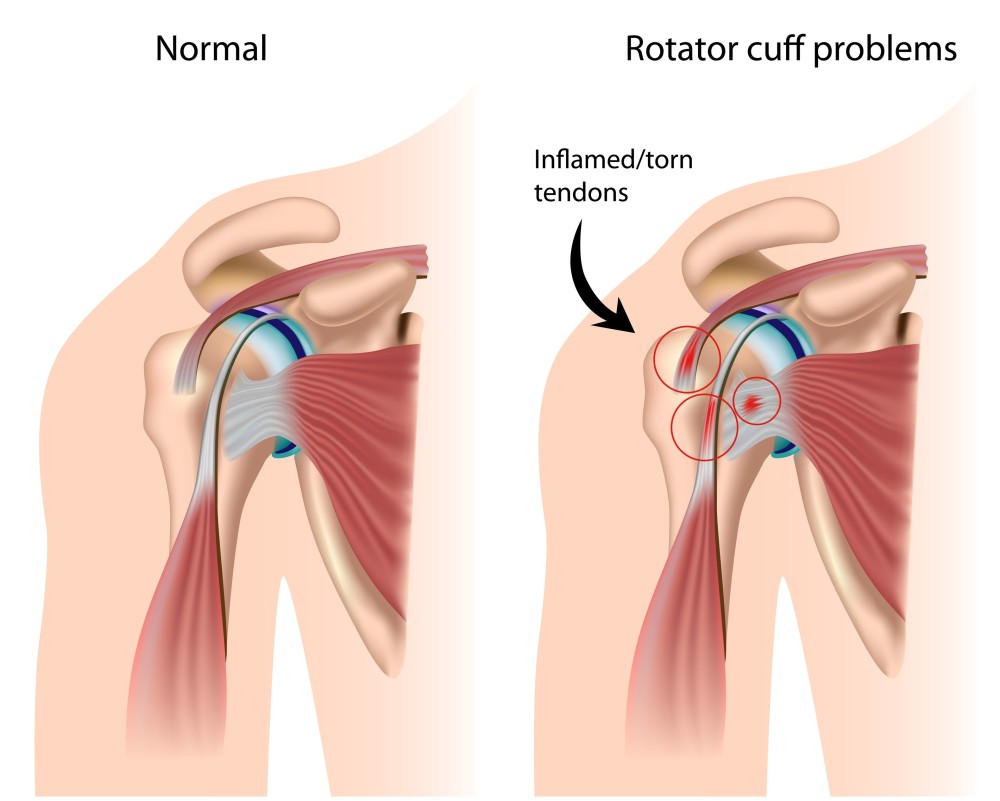Rotator cuff injuries
Rotator Cuff Injuries
Rotator cuff tendinitis is an injury that plagues athletes and non-athletes alike. It most often occurs from repetitive actions, like throwing a ball, lifting, or even sitting at a computer. The good news is that acupuncture for rotator cuff tears can help reduce pain, inflammation, and speed healing. [1-4]

Acupuncture for rotator cuff tendinitis
Acupuncture works to help heal rotator cuff injuries by increasing the circulation to the area and decreasing inflammation in the tendons. [6] Acupuncture also works to reduce pain and inflammation through regulating neural pain pathways, stimulating the release of natural pain relievers in the body, such as opioids, as well as regulating pain relieving opioid receptors.[4,7] In addition, research has shown that acupuncture stimulates the growth of muscle tissue which can help in healing of the injury.
Throughout my 17 years experience in practice, I have helped many people with rotator cuff injuries. My method considers both your constitutional state of health as well as muscle tension and development of trigger points in the areas. The acupuncture treatment is customized to each individual by addressing imbalances within the muscles, connective tissues, and acupuncture channels of the rotator cuff.
If muscle tension and trigger points are the primary issue, the local trigger points will need to be addressed. Active trigger points are areas of tenderness and stress in the muscle.
I will also select acupuncture points along the affected acupuncture channel that are farther away from the pain. This technique increases circulation in the acupuncture channels, which will reduce pain and speed healing.
Often with chronic injuries or joints that have been challenging to heal we will need not only to release the trigger points but also improve the energetic levels of the body. This may mean that there is an underlying weakness causing the inability to heal. If this is the case then acupuncture will focus on increasing the amount of energy in the body.
Electroacupuncture is particularly effective for rotator cuff injuries to speed healing and reduce inflammation. Tui na is also an effective method to address connective tissue injuries.
What is the rotator cuff tendonitis?
The rotator cuff consists of four muscles that connect the shoulder to the humerus of the arm: the suprspinatus, infraspinatus, teres minor, and subscapularis muscle. These muscles stabilize the arm while it moves.
Rotator cuff tendinitis occurs when there is inflammation or a tear in the tendons of the rotator cuff. Injuries often occur from repetitive movements like throwing a ball. It is also possible to injury the rotator cuff through injuries such as falling or lifting something too heavy.
After the injury, one may develop pain, weakness, difficultly moving the arm, and irritation. If left untreated, it may become worse. Due to lack of motion of the arm, the arm may lose muscles mass and develop long term weakness.
Trigger points are areas within muscles and connective tissue that become tightened and hyper reactive. They become so tight that the trigger points pull on other muscles and structures around the the muscles leading to pain and dysfunction. Acupuncture is a great method for reducing the trigger points within the rotatory cuff to help increase circulation and stimulate healing.[5]
Research on Acupuncture for Rotator Cuff Tendinitis
A study in the journal Pain showed acupuncture to reduce pain in athletes with rotator cuff injuries.[8] 52 people were enrolled and received acupuncture 2 times per week for 4 weeks. The acupuncture group’s pain was reduced much more than the placebo acupuncture group.
- Zhang R, Lao L, Ren K, Berman BM. Mechanisms of acupuncture-electroacupuncture on persistent pain. Anesthesiology. 2014;120(2):482-503.
- Otti A, Noll-Hussong M. Acupuncture-induced pain relief and the human brain’s default mode network – an extended view of central effects of acupuncture analgesia. Forsch Komplementmed. 2012;19(4):197-201.
- Thomas KJ, MacPherson H, Ratcliffe J, et al. Longer term clinical and economic benefits of offering acupuncture care to patients with chronic low back pain. Health Technol Assess. 2005;9(32):iii-iv, ix-x, 1-109.
- Berman BM, Lao L, Langenberg P, Lee WL, Gilpin AM, Hochberg MC. Effectiveness of acupuncture as adjunctive therapy in osteoarthritis of the knee: a randomized, controlled trial. Ann Intern Med. 2004;141(12):901-910.
- Zhou J, Chi H, Cheng TO, et al. Acupuncture anesthesia for open heart surgery in contemporary China. Int J Cardiol. 2011;150(1):12-16.
Feedback From our clients…
“I also have a chronic shoulder pain due to an injury for several years, and it used to interrupt me from getting work or even daily chores done. My orthopedic told me that I needed some cortisone shots to ease the pain, but I decided to try an alternative before going for cortisone shots. After just one acupuncture session, I was surprised how great my shoulder felt, and my shoulder continues to improve with each treatment. I am very happy with Joe’s treatments for both my chronic pain and skin problems, and I would recommend Alban Acupuncture with confidence.”
~ I.M., Brooklyn